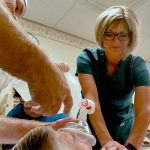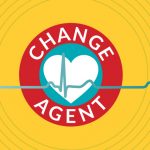“Let us never consider ourselves finished nurses … we must be learning all of our lives.”
— Florence Nightingale
This Nurses Week 2022, RQI Partners gives heartfelt thanks to nurses everywhere. We are proud to work with dedicated nursing professionals who make a difference every day, from nurses in clinical care to those in nursing education and administration. Reflecting on the history of National Nurses Week, our resuscitation quality improvement programs encompass the spirit of lifelong learning and nursing excellence.
Founding National Nurses Week
In 1993, the American Nurses Association officially designated May 6-12 as permanent annual dates to celebrate National Nurses Week, marking May 6 as the official start of the celebration culminating on May 12, the anniversary of Florence Nightingale’s birthday, renowned British nurse, statistician, and social reformer.
The Global Reach of Florence Nightingale
Nightingale’s trailblazing approach to infection control during her tenure as a battlefield nurse in the Crimean War earned her the reputation as the founder of modern nursing. In 1860, upon her return from the Crimean War, Nightingale established a nursing school in partnership with St. Thomas’ Hospital in London, effectively elevating nursing as a reputable and necessary profession. During her lifetime, Nightingale would publish over 200 reports and books regarding patient care, sanitation, and medical advancements.
Founding the National League for Nursing
Her publications not only became the cornerstone of nursing research and education across England but stretched across the globe. In 1893 at the Chicago World’s Fair, hospital superintendents gathered to establish American nursing’s first national organization, the American Society of Superintendents of Training Schools for Nurses. The Society sought to provide improvements for living and working conditions of student nurses and increase opportunities for post-graduate and specialized training.
Over the next century, the Society would evolve to become the National League for Nursing (NLN), with their journey including the establishment of a respected journal publication, associations with colleges and universities, and the organization of tiered degree programs for nursing. Today, the NLN is the premier organization for nurse faculty and leaders in nursing education. With 1,100 institutional members and nearly 45,000 individual members across the country, the NLN represents a diverse base of higher education and healthcare leaders engaging with professional development, research, and public policy initiatives.
Two Decades of Historic Partnerships
Nearly 20 years ago, the strategic partnership was formed between the NLN and Laerdal Medical to develop new programming for medical simulation, transition to practice, and global faculty development.
In 2010, the NLN and Laerdal Medical provided initial funding for landmark studies by nurse educator-scholars Marilyn Oermann, PhD, RN, ANEF, FAAN, Professor of Nursing at Duke University School of Nursing, and Suzan Kardong-Edgren, PhD, RN, ANEF, CHSE, FSSH, FAAN, Associate Professor at MGH Institute of Health Professions, that demonstrated the superiority of the ‘low-dose, high-frequency’ basic life support skill performance.
“Our first study was a multi-site design with over 600 nursing students. We studied curriculum dosing, the effect of monthly practice on nursing students’ CPR psychomotor skills performance. We found in the seminal study that low-dose, high-frequency three-month cycles were optimal for knowledge and skill retention, and eliminated skills decay for nursing students,” explained Dr. Oermann.
Groundbreaking Research Inspiration
The study provided the springboard for a partnership between the American Heart Association (AHA) and Laerdal Medical to establish the Resuscitation Quality Improvement (RQI) program in 2014.
Over the next eight years, RQI Partners embraced a culture of continual expansion and change, welcoming customers from both prehospital and in-hospital markets to include over 2 million learners to date.
In 2021, the NLN and Laerdal Medical announced a new partnership to integrate the RQI digital resuscitation program into nursing curricula nationwide. “With great excitement, I announce the advancement of the mission that we share with every member … to achieve excellence in nursing, a landmark transformative quality improvement collaboration with RQI Partners,” said NLN President and CEO Beverly Malone, PhD, RN, FAAN.
Nursing education and resuscitation leaders partner to help accelerate transformation of standard of care for cardiac arrest resuscitation.
“Adoption of this innovative technology … will help nursing programs prepare their nurses with resuscitation competence and maximize the lifesaving ability of nurses and other health care providers,” added Malone.
Empowering the Full Spectrum of Nursing
The integration of RQI education into nursing curricula ensures that nursing students are prepared to enter clinical practice with lifesaving competencies of resuscitation excellence. Rooted in science and propelled by innovation, RQI Partners is proud to return to our founding principles within nursing education.
We are thrilled to embark on this new journey with the NLN and are honored to now support the entire spectrum of nursing from student education to established professionals with verified competence and confidence in providing high-quality resuscitation care.
To learn more about RQI for nursing education, visit CPRNursingEd.org.








